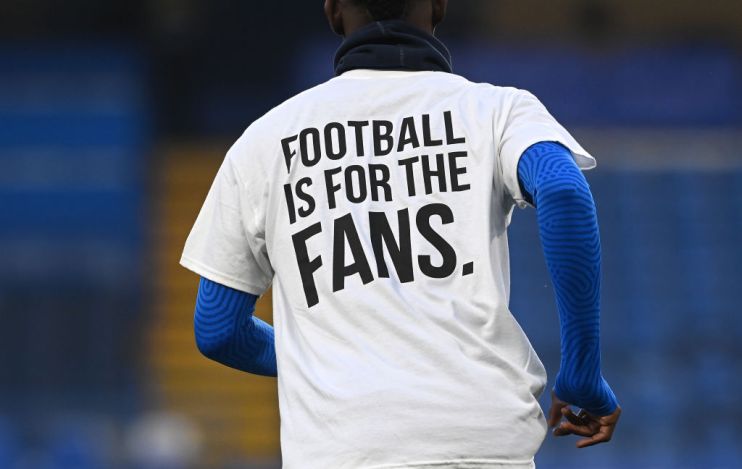The Super League collapsed all by itself and Boris Johnson’s threats to intervene were badly misguided

The Super League was a terrible idea. It inevitably fell apart before it even had a chance to begin. The owners of the dubiously self-titled Big Six exposed themselves as hopelessly out of touch with fans, players and their own managers. It became shamefully obvious to even the most fair-weather football fan that the format was designed to milk the global audience while preventing upstart teams from knocking the founding members off their perch.
The concept of a Super League is disrespectful to the communities in which the clubs are based. This sparked the outpouring of fury we saw yesterday. Under the sheer weight of the backlash, one by one the clubs capitulated until the Super League collapsed entirely.
In the end, the so-called Super League blew itself up. It did not need Government intervention, just regular outrage and terrible PR. Boris Johnson’s knee-jerk threat to “drop a legislative bomb” to stop the formation of the Super League shows Downing Street is following the philosophy of every other British government for the last twenty years. To deal with things it doesn’t like, it bans them, or at least threatens to, regardless of whether they are causing any harm or are any of the government’s business.
Try as I might, I cannot think of a single justification that passes muster for the state regulating the format of football tournaments. The Super League was, in effect, an alternative to the Champions League. Its most obnoxious feature was that the fifteen founding members will be forever immune from relegation, which sounds boring.
It could be tenuously argued that the premise of the Super League was anti-competitive and therefore a suitable target for regulation, but one would then have to smash the cosy duopolies of the Boat Race and the Ashes, as well as oligopolies such as the Six Nations. In any case, the Super League would hardly have carved out a monopoly on football. It would not have even had a monopoly on European football since the Europa League would continue and the Champions League would probably stagger on.
These clubs were restricting competition between themselves, but they magnanimously announced that five lesser teams would have been allowed to sit at the top of the table for at least one season at a time if they played well. Those teams would, I presume, have had a chance of lifting the trophy. The idea that this was a “cartel”, as Keir Starmer claimed, was wide of the mark.
It could be argued that football clubs are part of our heritage and should be protected, but the government does not nationalise clubs that go bust, nor does it prevent their sale to foreign owners. The Big Six were not planning on disappearing, they were just going to play half their games abroad. They would have been more financially secure than ever.
The threat of capricious Government intervention, however, was badly misguided. If a greedy football club only wants to play against other greedy football clubs, that is their right. The response of fans should be to cancel their season tickets and TV subscriptions until their clubs come to their senses.